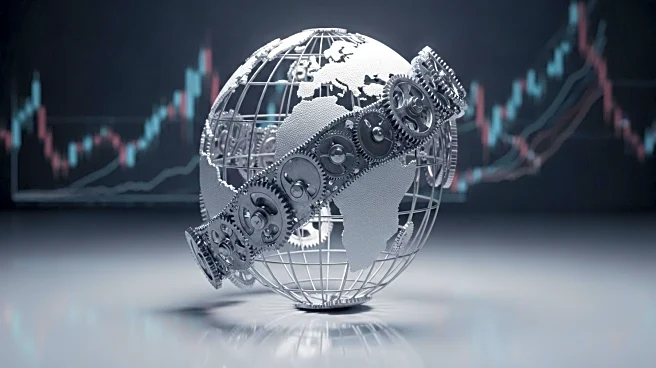What is the story about?
What's Happening?
Kristalina Georgieva, Managing Director of the International Monetary Fund, has issued a warning about the ongoing uncertainty in the global economy. Speaking ahead of the IMF's annual meetings, Georgieva highlighted the resilience of the global economy despite challenges such as President Trump's trade policies. The U.S. is expected to avoid recession, but Georgieva pointed to signs of strain, including record gold prices and high stock valuations. She cautioned that the full impact of U.S. tariffs is yet to be seen, and financial markets may face abrupt shifts in sentiment.
Why It's Important?
Georgieva's warning about uncertainty being the 'new normal' reflects the fragile state of global economic stability. The resilience shown by the U.S. economy is significant, but the potential for sudden changes in market sentiment poses risks to global growth. High valuations in the stock market, driven by tech companies, could lead to a correction that impacts developing countries. The IMF's call for policy action to address global imbalances highlights the need for strategic economic management to mitigate risks and support sustainable growth.
What's Next?
The IMF will update its World Economic Outlook during its upcoming meetings, providing new insights into global economic trends. Georgieva has urged policymakers to address fiscal deficits and promote household spending to reduce instability risks. The U.S. is advised to tackle its public sector deficit, while China is encouraged to reform its economic policies to boost growth. The IMF's recommendations aim to enhance economic resilience and address structural challenges in major economies.
Beyond the Headlines
Georgieva's remarks highlight the broader implications of economic uncertainty, including public frustration and demands for better opportunities. The call for reforms in Europe and China suggests a need for deeper integration and competitiveness in global markets. These efforts could lead to significant shifts in economic policies and strategies, impacting global trade and development. The emphasis on addressing economic imbalances reflects a push for more equitable growth and stability.















